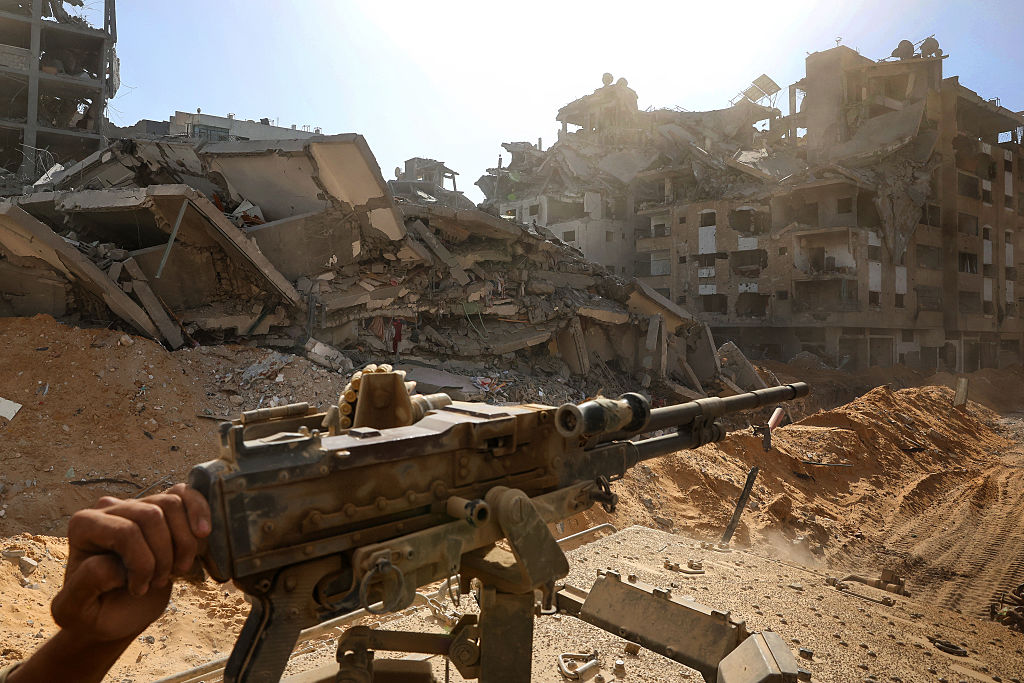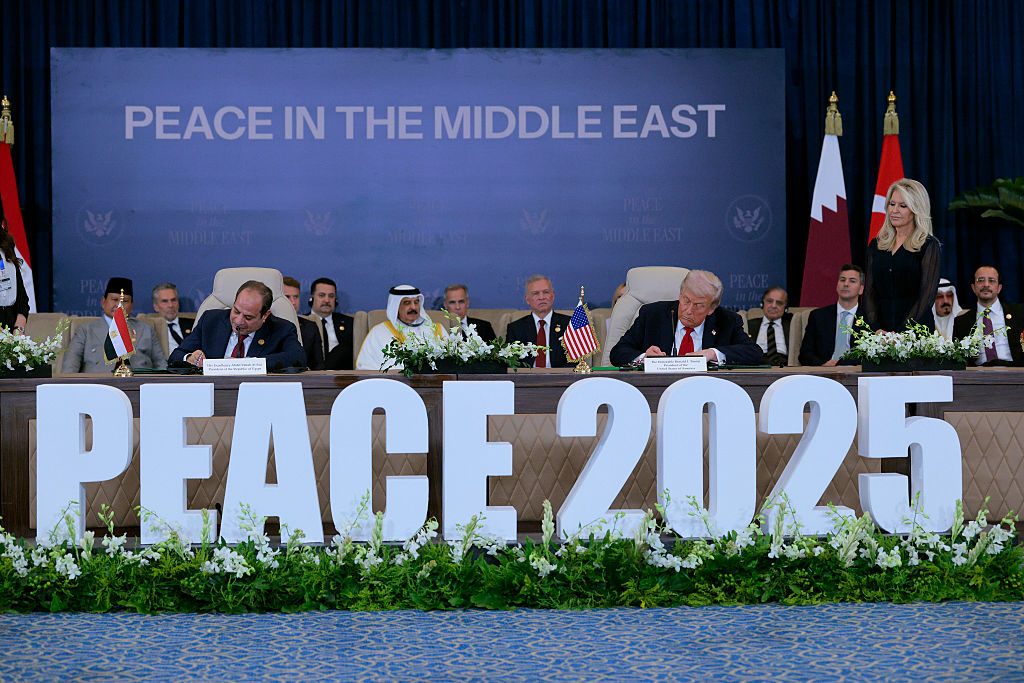Back in 2016, Donald Trump had a memorable quote that pretty much encapsulated his old over the Republican Party: “I could stand in the middle of Fifth Avenue and shoot somebody, and I wouldn’t lose any voters, OK.”
At this point, you might be able say the same thing about Israeli prime minister Benjamin Netanyahu. The premier could stroll up Fifth Avenue, shoot somebody on the street and still receive US-supplied joint direct attack munitions, 2,000-pound bombs, fighter aircraft and no-strings-attached diplomatic support. The man can apparently do no wrong in the eyes of the Biden administration — or more accurately, he couldn’t do anything that would warrant even a minor, let alone substantive, adjustment in US policy.
But is that changing? President Biden’s conversation with Bibi today, during which he threatened to condition US policy on a series of Israeli humanitarian concessions, would suggest the answer is yes. So would White House national security spokesman John Kirby’s declaration after the call that there will be changes if the Israelis don’t play ball.
This is a monumental shift in the administration’s vocabulary and an indirect admission that the US approach toward the war in Gaza thus far was grossly ineffective.
This past Monday was a microcosm of that policy failure. Later that day, Israel bombed a humanitarian aid convoy organized by World Central Kitchen, the charity founded by celebrity chef José Andrés, killing seven aid workers and grinding humanitarian operations to a halt. While the Israeli Defense Forces claimed a case of mistaken identity, the chef alleged something far more sinister: a targeted plot against his colleagues. “This was not just a bad luck situation where ‘oops’ we dropped the bomb in the wrong place,” Andrés told the Reuters news service a day after the strike. “They were targeting us in a deconflicting zone, in an area controlled by IDF.”
Back in Washington, the administration was furious at the news. President Biden, in perhaps his harshest comments to date, released a statement faulting Israel for not doing enough to protect humanitarian aid workers as they seek to care for the more than 2 million Palestinians in Gaza who are either suffering from shortages or close to famine. “Israel,” Biden wrote, “has also not done enough to protect civilians.” The president, one anonymous US official said afterwards, “is pissed.”
Apparently not pissed enough. On the very same day Biden was giving the Israeli government a tongue-lashing, the US State Department approved the transfer of 1,000 MK82 500-pound bombs in addition to 1,000 small-diameter bombs. Since the start of the war on October 7, the US has sent at least 23,000 precision guided weapons — missiles, drones and munitions kits included — to the IDF, an extraordinary amount of weapons in such a short period of time. Of course, there’s a war going on; tens of thousands of Israeli troops remain in Gaza combing for Hamas terrorists as we speak, and Israeli military planners are in the ongoing process of preparing for a final thrust into Rafah, the southern Gazan city that holds around 50 percent of the enclave’s entire population. But it doesn’t take a genius to assume that some of those weapons are killing civilians on the ground, precisely what Washington is furious about.
The United States is now in this ridiculous position whereby it scolds Israel for any number of sins in Gaza but isn’t prepared to really do anything about it. There is no accountability for mishaps, no punitive action delivered and certainly no policy reevaluation on the horizon—only strongly worded statements issued for public consumption, selective leaks from anonymous officials about how hot under the collar Biden is and the occasional negative remark from the president himself.
The White House has insisted that Biden has been tough on the Israelis all along. “I don’t think you can look at what we’ve been saying, what we’ve been doing, or even the president’s statement last night and say that we’ve somehow gone easy on Israel,” Kirby told reporters yesterday.
But what has the administration been doing, exactly, other than wagging its finger, getting on the horn to shout at Israeli officials (and to get shouted out) for not following its advice and, when possible, working with Netanyahu to get more humanitarian aid into Gaza — and when that doesn’t work, constructing an entire pier from scratch? Meanwhile, the munitions keep flowing unconditionally, as if the verbal concerns and red-lines were just a show to tell the world that the US understands what’s going on and isn’t happy about it.
US officials consistently stress that its “bear-hug” approach is having a tangible impact on how Israel is operating in Gaza. The administration points to Israel’s decision early on to allow a trickle of food into the area, to refrain from launching a preemptive war against Hezbollah in Lebanon and to delay a massive ground invasion of Rafah. But how much credit can the administration take for these decisions, really? Permitting food and other forms of aid into Gaza is technically required under international humanitarian law and doesn’t cost the Israeli military anything in terms of its campaign. Having second-thoughts about a large-scale operation against Hezbollah wasn’t entirely Washington’s doing; members of Netanyahu’s own war cabinet, including former IDF chief of staff Gadi Eisenkot, vocally expressed his opposition to it and was arguably in Israel’s own interest anyway. As far as Rafah is concerned, the IDF doesn’t seem to be even remotely ready for an offensive there. Over a million Palestinians will need to be moved out of the city and its immediate environs, which US officials estimate could take as long as four months.
The US is facing a growing perception problem. It’s also facing a policy problem. The war in Gaza has likely eviscerated its quest to normalize relations between Israel and Saudi Arabia. The humanitarian costs, and US complicity in it, isn’t doing Washington any favors with its relationships in the Arab world. And the entire crisis, as well as America’s response to it, is reconfirming what many people across Asia, Africa, the Middle East and Latin America already suspected: the rules-based order only applies when the US wants it to apply.


























Leave a Reply